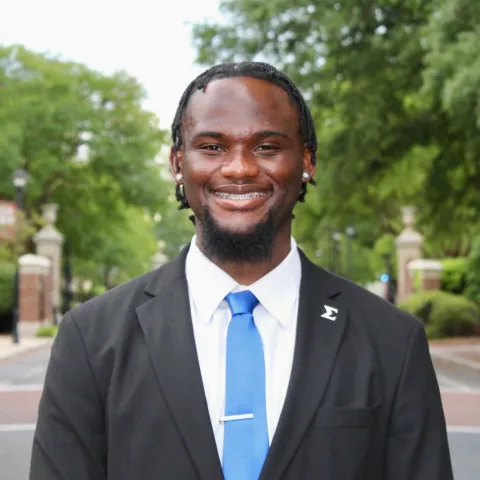Produced and hosted by Listervelt Middleton, For the People delivered African American history and culture every week to South Carolina ETV's viewers.
This week we feature the second part of the interview with Ossie Davis and Ruby Dee, followed by an interview with historian and author John Henrik Clarke. View Part 1 with Ossie Davis and Ruby Dee.
Ossie Davis and Ruby Dee are both accredited married actors; this is the second part of their interview. In this interview with Listervelt Middleton the actors discuss their views on the role Black women should play in the women's rights movement.
Both Ossie Davis and Ruby Dee express their love and adoration for poet and activist Langston Hughes with quotes from his work. Davis shares his thoughts on the transfer of knowledge between the elderly and the youth in order for Black people to be successful as a race. Davis also encourages Black women to continue being Black and to embrace sisterhood. Ruby Dee believes that for the women’s rights movement to be successful white women in the movement should be more welcoming of Black women attempting to join the movement.
Dr. John Henrik Clarke is a historian, professor, and author. Dr. John Henrik Clarke is also credited for helping make Harlem the cultural capital of Black America. In this interview Clarke will discuss why Harlem, New York is important to America. Clarke says that the Black migration severely helped the growth of Harlem and speaks on what attracted people to Harlem. He stated that the majority of white people began to leave Harlem and lingered until late 1945.
Please stay tuned for part two of the John Henrik Clarke - Harlem Interview.
Side Notes
Ossie Davis was born on December 18, 1917 in Cogdell, Georgia. He graduated in the top five percent of his high school class. Davis later enrolled at Howard University in 1935. In 1956 Davis made his Broadway debut where he met his wife Ruby Dee. He performed in many Broadway productions, being inducted into the Theater Hall of Fame in 1994. Davis also wrote and directed many films including Countdown at Kusini with his wife Ruby Dee. This film was the first feature film shot completely in Africa by Black professionals. Ossie Davis received the Hall of Fame Award for Outstanding Artistic Achievement in 1989, The U.S. National Medal for the Arts in 1995, a NAACP Image Award, and the Screen Actor's Guild Lifetime Achievement Award in 2001. Ossie Davis performed in a number of films including The Scalphunters (1968), Cotton Comes to Harlem (1970), Do The Right Thing (1989), Get on the Bus (1996), and Dr. Dolittle (1998). Davis was inducted into the theater Hall of Fame and the NAACP Hall of Fame alongside his wife Ruby Dee. Ossie Davis passed away on February 4, 2005 at the age of 87.
Ruby Ann Wallace or Ruby Dee was born on October 27, 1924 in Cleveland, Ohio. Later moving to Harlem, New York during the golden age, Ruby attended New York City's Hunter College and graduated in 1945. Being drawn to theater in college Dee acted in a number of Shakespearian productions and began to study with the American Negro Theater, which led her to meet her future Husband Ossie Davis. Ruby Dee was the first Black woman to play lead roles at the American Shakespeare Festival, winning multiple awards for her performances. Having played both Jackie Robinsons wife and mother during her career, Dee appeared in over fifty films. Dee preformed in a number of films including a Raisin In The Sun (1961), Uptight(1961), Buck And The Preacher (1972), Roots(1978), Do The Right Thing (1989) and The Delany Sisters: The First Hundred Years (1999). Ruby Dee also won an Emmy Award for her performance in Decoration Day (1990). Dee was inducted into the Theater Hall of Fame and the NAACP Hall of Fame alongside her husband Ossie Davis. Ruby Dee passed away on June 11, 2014 at the age of 91.
John Henrik Clarke was born on January 1, 1915 in Union Springs, Alabama. In 1932 Clarke left the South at age 18 and traveled to Chicago, Illinois. He later migrated to New York City, New York where he began to study Africa and it's history. In 1949 the New School for Social Research asked Clarke to teach courses in their newly created African Studies Center. Later Clarke founded the African Heritage Studies Association in 1968. He also created the Black and Puerto Rican Studies Department at Hunter College in New York City. Clarke also lectured at Cornell University as a distinguished visiting Professor of African history. Clarke wrote many books throughout his life. John Henrik Clarke passed away on July 16, 1998 at the age of 83.

